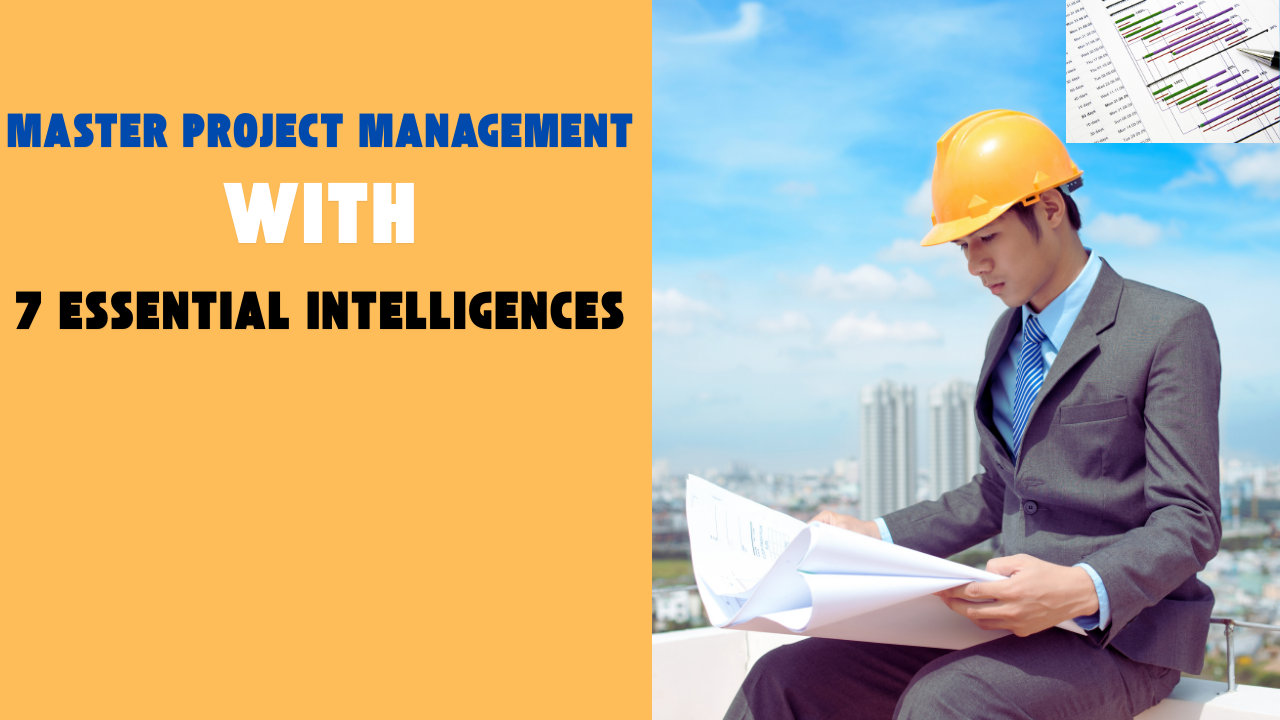Introduction
Are you tired of projects falling short of their goals? Do you want to take your project management skills to the next level?
Today, we’re diving deep into the 7 Essential Intelligences that every successful project manager needs.
Whether you’re a seasoned pro or just starting out, these intelligences will empower you to lead your teams, overcome challenges, and deliver exceptional results.
Get ready to unlock your full potential and become a true project management mastermind
Table of Contents
Project Management Intelligence Basics
So you’ve just been appointed a project manager, or you’ve just been assigned a project to deliver. Either in your career as a project manager or it could be a one-time project management task.
Don’t worry, in this story, we are going to cover seven types of intelligences.
All details are shared from my 2 decades of Project Management experience.
You can also download a free Project Manager Skills Checklist here.

So you have decided to be a project manager, or you want to continue practicing as a project manager.
There are certain project management intelligences that you must build within yourself as a project manager for you to be successful in your career or in your project implementations.
We’re not talking here about intellectual intelligences, which is normally called IQ, which comes through your birth.
We are talking about intelligences that you can build as an individual and as a project manager as you go through your career.
Definition
Intelligence is a complex concept that has been defined and debated by philosophers and psychologists for centuries. Generally, it refers to the ability to acquire and apply knowledge and skills. However, the specific definition can vary depending on the context.
Here are some common interpretations:
Traditional View: Cognitive Abilities
- Problem-solving– The ability to identify and resolve issues.
- Reasoning– The capacity to think logically and draw conclusions.
- Learning– The acquisition of new information and skills.
- Memory– The ability to store and retrieve information.
Multiple Intelligences Theory
Howard Gardner proposed the theory of multiple intelligences, suggesting that intelligence is not a single, general ability but a collection of distinct abilities. These include:
- Linguistic– The ability to use language effectively.
- Logical-mathematical – The ability to reason logically and mathematically.
- Spatial – The ability to think visually and spatially.
- Bodily-kinesthetic – The ability to use one’s body effectively.
- Musical – The ability to understand and create music.
- Interpersonal – The ability to understand and interact with others.
- Intrapersonal – The ability to understand oneself.
- Naturalist – The ability to recognize and categorize patterns in nature.
1. Emotional Intelligences — EQ
Emotional Intelligence (EI) is the ability to understand, use, and manage your own emotions in positive ways to relieve stress, communicate effectively, empathize with others, overcome challenges, and defuse conflict
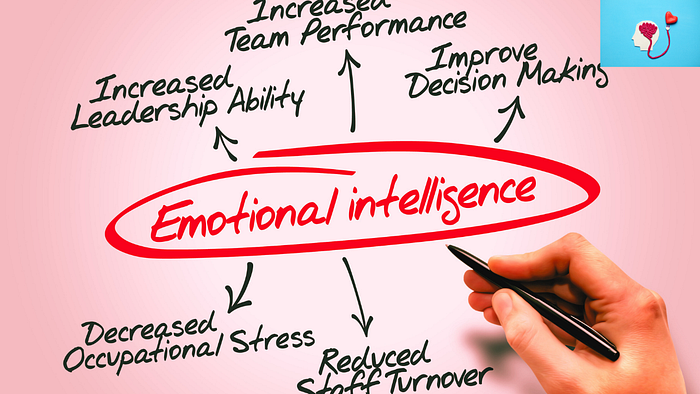
Personal Emotions
The first thing that you have to sort out your own emotional intelligences is your own emotional management as a project manager.
So we are talking about personal emotions.
Throughout my experience, this is one of the challenges I’ve seen or one of the mistakes I’ve seen main project managers messing up.
If you’re not able to manage your personal emotions, it won’t be very easy for you as a project manager to navigate different places, different meetings, and different individuals.
So make sure you start by working on your personal emotions in your career as a project manager.
Build Relationships
By perfecting this EQ, you’ll also be able to build relationships.
So if your emotional intelligence is high, building relationships becomes very easy. Once you build your relationship, you have trust, you have loyalty, and also collaboration.
When your emotional intelligence is very high, you manage your own personal emotions in any situation in the project as a project manager, and you also build relationships with different groups, and different stakeholders of the project.
So this is quite important that you should have this EQ perfected.
Composure Under Pressure
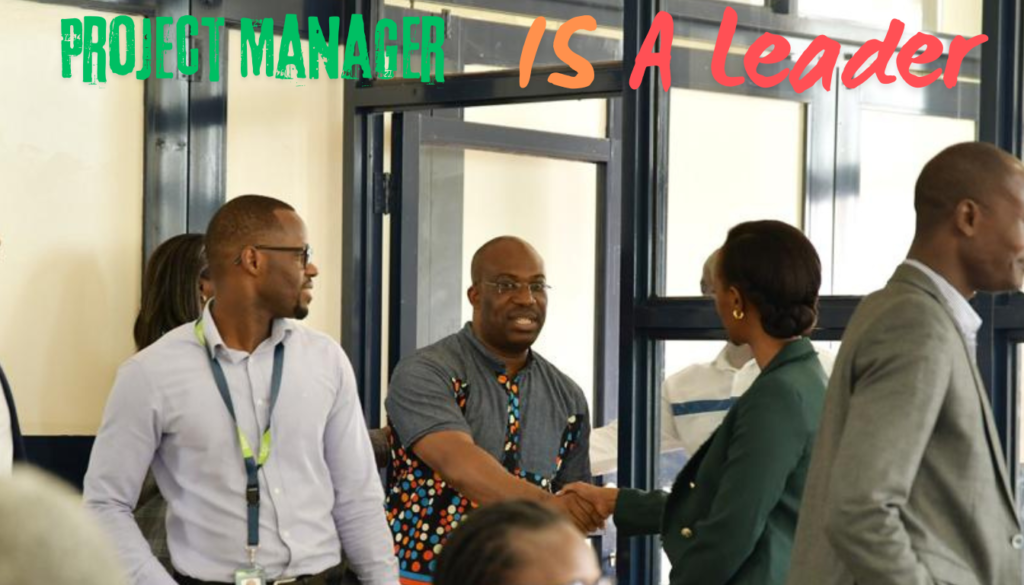
Then also you’ll find that even under pressure, composure under pressure is easy to manage, no matter what pressure you are going through in the project, projects are always having pressures, they go up and down.
If your composure is very good and comes from high emotional intelligence, you’ll find it easy to manage as a project manager.
Motivate and Inspire Others
You can also motivate others. You can also motivate others or even inspire them.
So if your emotional intelligence is very high, or you improve your emotional intelligence as a project manager, you will find that it will be very easy for you to motivate and also to inspire other stakeholders and also other project managers.
Value feedback
If your intelligence is very high in terms of emotions, you are able to value feedback from each and every stakeholder, whether it’s in a meeting, whether it’s through activities or project activities, you’ll find that being able to value feedback from people is very important.
You might think as a project manager, whatever you’re doing is right, but someone might tell you that, no, what you’re doing is not right, do things this way.
So if your emotional intelligence is very low, you won’t tolerate people who give you direct feedback, which is very important in your career as a project manager.
Ways to Build Emotional Intelligences
So how do you build this EQ?
Active listening
In most cases, you find active listening is very important.
Empathy
So empathy is the ability to go into other people’s shoes, and view concepts, and situations the way they’re viewing that, then you’ll be able to make the right decision.
So this is number one.
But if you develop this, you’ll find that even during any very difficult situations, you’ll be able to progress with your project and also deliver.
2. Cultural Intelligences — CQ

Cultural Intelligences (CQ) is the ability to understand and effectively interact with people from different cultural backgrounds.
Nowadays, it’s not very easy and it’s not usual for a project to be run within the same culture. Most of the projects are now run by different cultures.
So there are certain intelligences that you need to build within this culture.
Multi-Cultural Project Scenario
a) You need to value different people.
b) You also need to leverage different people or different cultures.
c) You also need to work with different cultures.
d) You also need to learn from different cultures.
3. Strategic Intelligences — SI
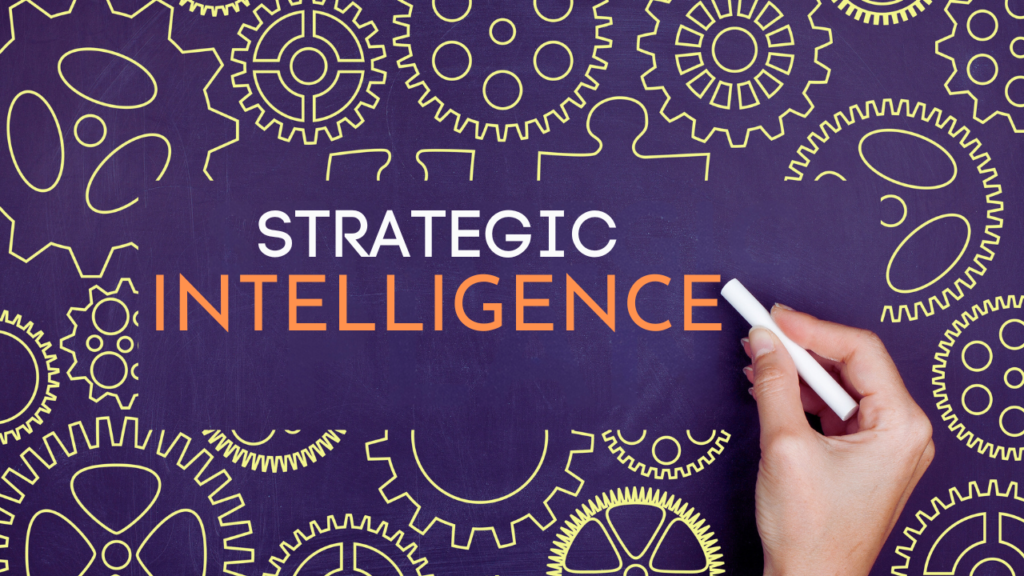
The next intelligence we are going to look at is called strategic intelligences.
So a project manager is always a leader. When you’re a leader, you must have strategic thinking and you acquire that through your Strategic Intelligences.
Strategic Intelligence is the ability to think critically, analyze complex situations, and make informed decisions. It involves:
- Foresight: Anticipating future trends and challenges.
- Systems Thinking: Understanding the interconnectedness of different elements.
- Critical Thinking: Evaluating information and identifying potential solutions.
- Decision-Making: Making sound judgments based on available information.
Strong strategic intelligences enables project managers to develop effective plans, adapt to changing circumstances, and achieve long-term goals.
What do we mean by this?
a) Understand Your Surroundings
You must have the ability to understand what is happening around you (your surroundings). As a project manager, strategically, you should be able to understand your surroundings.
b) Foresight Thinking
You are also supposed to be able to engage in what is called foresight thinking. This means you are able to see in the future. You are able to see very far.
c) Back from the Future
Engage in what is called “back from the future”. This is now your ability to see the future and then you bring it back to the present moment so that people can understand where they’re starting from and where they’re going to.
As a project manager, you need to think strategically to master this one.
d) Combine Short-term and Long-Term Objectives/Goals
Then the next one, you should be able to combine short-term and long-term actions or objectives and goals.
This is very important to acquire as a project manager.
You should be able to combine long-term and short-term goals and objectives.
If even if you’re an internal project manager, you also need to know where the organization is going and how the project is going to help the organization in terms of achieving its long-term and short term short term goals.
So let’s move on to the next intelligence so.
4. Resilience intelligences — RQ
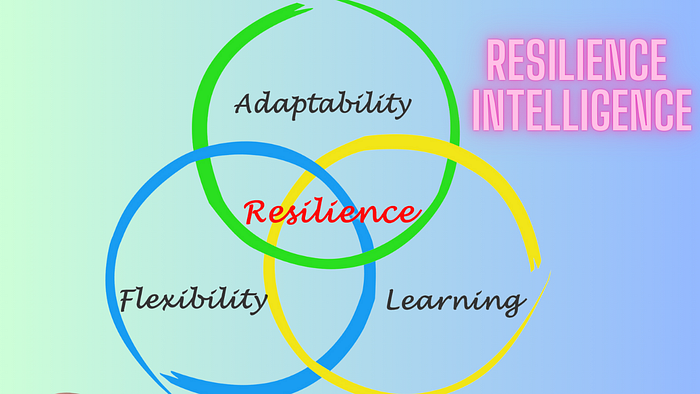
The next one is called resilience intelligence, normally called RQ.
Resilience Intelligence is the ability to bounce back from setbacks, adapt to change, and maintain a positive outlook. It involves:
- Self-awareness: Understanding one’s strengths, weaknesses, and triggers.
- Self-regulation: Managing emotions and impulses.
- Optimism: Maintaining a positive outlook, even in difficult situations.
- Adaptability: Adjusting to change and overcoming obstacles.
Strong resilience intelligences helps project managers stay calm under pressure, maintain motivation, and find creative solutions to problems.
So what do we mean by this?
Not every project is going to run smoothly. Even small projects, they can go the wrong way.
Big projects, I’ve seen them them go the wrong way.
But as a project manager, if that happens, what are you supposed to do?
The most important thing you have to do as a project manager is to be able to bounce back. So if you build your resilience intelligence, you will be able to to bounce back as a project manager and also continue executing the project.
You can bounce back from so many things.
a) It could be delayed.
b) It could be discouragement.
c) It can also be just a general setback
d) You need also to pick failures as lessons.
So when running the project, you might face a lot of challenges.
Some of them are very discouraging.
Some of them, they’re delays that you can experience.
Some of them are setbacks.
And also you might have done things the wrong way. We call them failures. However, as a project manager, don’t take them as failures. You need to take these ones as lessons learned. Then you pick it from there going forward.
Then where it’s also very possible, you take all the challenges with optimism. So as you build your resilient intelligence, take challenges with optimism.
They always come. You always come across this. So embrace them.
5. Morale Intelligences — MQ

Morale Intelligence refers to the ability to understand, influence, and improve the mood and motivation of a team. It involves:
- Empathy: Understanding the feelings and needs of team members.
- Positive Reinforcement: Recognizing and rewarding achievements.
- Effective Communication: Clearly communicating expectations and goals.
- Building Relationships: Fostering a positive and supportive team culture.
Strong morale intelligence helps project managers create highly motivated and engaged teams, leading to increased productivity and job satisfaction.
I’ve been a project manager for some time now; you are going to come across certain situations, you’re going to come across certain scenarios you’re going to come across where your morale or your morale is going to be stretched.
I can give you a good example, especially when you’re working with suppliers and contractors.
They try to do so many things so that they get the contract to be involved in that project.
If your principles and morale are not very strong, you realize that you’ll be found in the wrong side of the law and of your principles.
So what are you supposed to do here?
You must remain principled and also you must protect your integrity.
You also have to do what is right. Yeah, you don’t do what they want, you do what is right.
So this is very important. You need to protect your morale.
You do what is right.
Once your morale is high, you gain trust among the stakeholders.
So this is the fifth intelligence that you have to build and perfect as a project manager.
6. Institutional Intelligences — II

The next intelligence that we’re going to look at is called institutional intelligence.
It’s called II, Institutional Intelligence.
As a project manager, you should be able to understand how your institution works.
When you understand how your institution works, then you are able to navigate to get results.
Navigate to get Results
Once you are able to understand your institutional intelligence, you are navigate the organization and get results
Align with Processes/Procedures
You are also able to align with processes or even procedures within the organization if your (II) if high.
Identify any Areas of Improvement
You should have institutional intelligence, understand how your institution works, and be able to identify any areas of improvement.
So identify areas of improvement in your institution.
If you don’t understand your institution, you won’t be able to identify areas of improvement.
7. Storytelling Intelligences — SQ
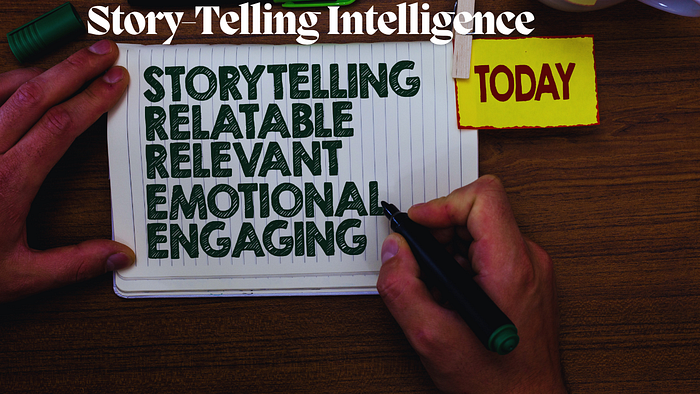
So the last one that we are looking at is called number seven, Storytelling Intelligence. It’s normally called SQ.
So as a project manager, you must be a very good storyteller.
You want people to understand, you want people to achieve, you want people to visualize what you have in your mind.
So for you to be able to make that visualization happen, you must have very good storytelling.
Why story-telling
a) You to influence others.
b) You want to change mindsets.
c) You also want to touch the hearts and the souls of people.
As a project manager, this is very important.
You want to explain to people, you want to give people examples on how things should be done.
If your storytelling is not very good, it will be very difficult to pass that information.
You want to influence people’s thinking in the project, all the stakeholders or project members.
For you to be able to influence them, you must have a thinking that is going to come through your storytelling which you can push through to the other stakeholders to appreciate your point and views.
Conclusion
So these are the main seven items that you have to look at or seven intelligences that you have to build perfectly as a project manager.
Remember we said there are seven, seven types of intelligences that a project manager is supposed to build or perfect.
These ones do not come through your birth, you have to work towards them.
You need to build them for you to become a very effective project manager and be able to deliver projects within the timeline, within the scope, and also within the budget.
So the first one that we have looked at is Emotional or EQ.
The second one is Cultural or CQ.
The third one we have looked at is called Strategic or SI.
The fourth one we have looked at is called Resilience or RQ.
Then the fifth one is called Moral or MQ.
So the sixth one is called Institutional or II.
The last one is Storytelling or SQ.
Frequently Asked Questions – FAQ
What is emotional intelligences, and why is it important in project management?
It involves understanding and managing your emotions and those of others. It’s crucial in project management for effective communication, conflict resolution, and team motivation.
How does cultural intelligences affect team dynamics and project outcomes?
Is the ability to relate and work effectively across cultures. It enhances team collaboration and ensures successful project outcomes by respecting and valuing diverse perspectives.
What role does strategic intelligences play in successful project management?
It involves long-term planning and decision-making. It helps project managers align projects with organizational goals and adapt to changing environments.
How can resilience intelligences help a project manager handle setbacks?
Is the capacity to recover from difficulties. It enables project managers to maintain focus and motivation, effectively addressing challenges and setbacks.
What is morale intelligences, and how does it impact team motivation?
It involves understanding and influencing team spirit. It impacts motivation by fostering a positive work environment and encouraging team members to perform at their best.
Why is institutional intelligences crucial for navigating organizational structures?
It involves understanding organizational culture and politics. It is crucial for effectively navigating complex structures and gaining support for project initiatives.
How can storytelling intelligences be used to enhance project presentations and stakeholder engagement?
It uses narratives to convey project information compellingly. It enhances presentations by making them more engaging and helps in gaining stakeholder buy-in.

